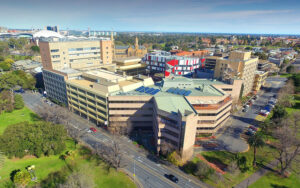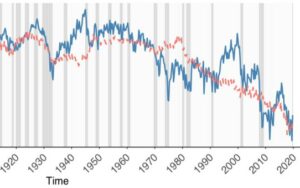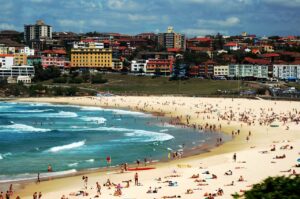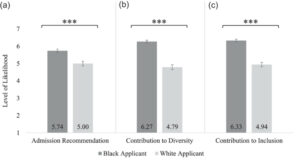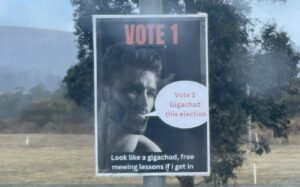The recent European Union parliamentary election showcased that far-right parties across Europe have entered the mainstream. In France, Le Pen’s National Rally secured approximately a third of the vote, over twice the vote share of French President Emmanuel Macron’s party. In response, Macron has dissolved the French parliament ahead of a snap election on June 30.
In Austria, the FPO (far right) has matched the vote share of OVP (centre right). In Italy, the Brothers of Italy have secured around 30 percent of the vote, more than doubling their seats. In the Netherlands, the PVV have overtaken the VVD and is now the largest right-wing party, reflecting their domestic success last year. Meanwhile, across Spain and Poland, both Vox and Confederation have gained a sizable share of each country’s centre-right party’s vote share.
The most astonishing result of the night, however, was found in Germany, where perhaps the most controversial elected party in the Western World, Alternative for Deutschland, gained around half the vote share of the stalwart CDU/CSU. Contrary to conventional thinking, AfD’s success did not occur in spite of the youth vote, rather it was because the AfD tied with the CDU/CSU as the most popular party for voters aged 16 to 25 years.
The success of AfD in winning over youth voters is not an isolated phenomenon, with recent domestic results across Portugal, Italy, Sweden, the Netherlands, and France, hard-right parties across Europe are surging in the realm of youth support.
Why have the same people, who for half a decade participated in the “greenwave” of 2019, switched their loyalty to the hard right? And why are Australian hard-right parties and candidates unable to similarly win over young people?
What is the hard right?
The AfD, among others, weave together the mainstream kosher conservatism of the last half century and the radical elements of the far right, into what I describe as the hard right. The hard right is the presentation of radical elements, such as immigration restrictionism, nativism, conservative social positions, and nationalism, in a way that departs from the vulgar and garish presentation the general population often associates with the “far-right”.
How did the hard right win young voters?
Politicians like Maximillian Krah and Jordan Bardella have set up a tangible presence meeting where young voters are at – social media. Unlike last century’s Pauline Hanson, they aren’t postulating in front of the geriatrics who have fallen asleep during Paul Murray, instead they have weaponised the viral nature of TikTok. They are also talking about the issues that matter to young people, in particular young men – masculinity, foreign policy, jobs, and most importantly, identity.
“One in three young men in Germany has never had a girlfriend. Are you one of them? Don’t watch porn, don’t vote green, go outside into the fresh air. Be confident. And above all, don’t believe you need to be nice and soft. Real men stand on the far right. Real men are patriots. That’s the way to find a girlfriend!”
– Maximilian Krah on TikTok
“German Bundeswehr soldiers are supposed to be dying in the Middle East. That’s what Roderich Kiesewette, the chief foreign policy officer of the CDU/CSU wants … We don’t want those who scream for war and weapons, but we want those who think about what our German interests are …”
– Maximilian Krah on TikTok
What the Australian right can learn from Europe
The two most important lessons that parties and candidates who seek to represent patriotic, right-wing Australians can immediately implement if they wish to see similar successes to the European hard-right could be summarised as such:
- Imitating and exceeding the professionalism of the establishment, both through visual communication, the level of experience of party members & rhetoric
- Recognising the power of social media and allowing young party members creative liberty in their use of it (even when they’re provocative and politically incorrect)
These are two areas where Pauline Hanson’s One Nation party falls flat. It has insufficiently empowered its most active young members leaving the party devoid of fresh energy, and yet has not acquired the air of experience the major parties portray and cannot seem to throw off its reputation as the party of low-class “bogans”.
What we can learn from Alternative for Deutschland
Another useful takeaway is the story of how Alternative for Deutschland found its beginnings. It was originally founded by three members of Germany’s centre-right CDU party, with early supporters including prominent economists, business leaders, and journalists. Within the AfD there remained centre-right moderate influences in the Alternative Mitte faction with Tino Chrupalla, Alice Weidel, and Mariana Harder-Kühnel. At the same time, a dying hard right influence through the now dissolved Der Flügel faction, with prominent members like Björn Höcke remaining influential. Max Krah, is a combination of the two, a former member of the Junge Union (junior union for CDU, similar to Australia’s Young Liberals) after German reunification. He worked for the party as a staffer and spokesman, even running for the CDU for the Bundestag in Dresden. Krah left the CDU in 2016, and joined the AfD within a month. In the near decade since, Krah has risen to become the face of the AfD in the recent European Union Parliamentary elections, melding together a radical message with an established presentation.
Krah’s rise is notable because it follows the path laid out in John Lawson’s article on Australian nationalist political strategy – in short, climbing the rungs of the establishment and then breaking away from said establishment with years of experience and political credibility intact to support an alternative party.
Conclusion
To wrap up, there is much that can be learnt from the sweeping successes of the hard-right across Europe. Hope is alive for the West, the time is now to begin taking Australia back at the ballot box.
Matthew Fischer is co-host of the Backbench Drivers podcast. Find more of his content on Telegram.
This article was originally published on The National Observer and is republished by The Noticer with permission

